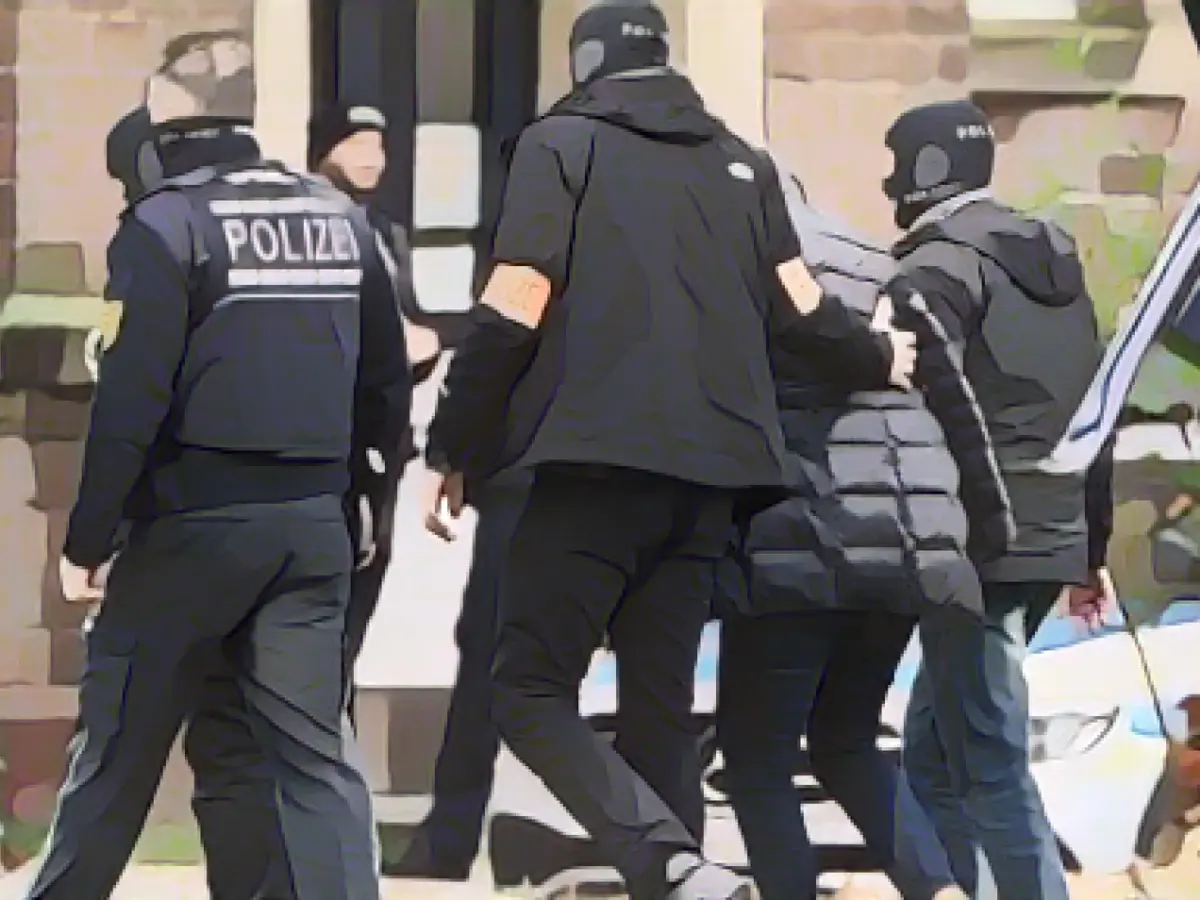Title: "Crackdown on Anti-Government Extremists: The Reichsbürger Raid and Its Aftermath"
In a significant move against domestic extremism, German authorities recently conducted a large-scale raid against suspected members of the Reichsbürger movement. This group, which rejects the Federal Republic of Germany and its democratic structures, is now the focus of the country's counter-terror operations, as revealed in details by STERN.
The Operation
Early December last year saw German authorities arrest 27 individuals, some of whom are high-profile members of this anti-government extremist group. These suspects include Birgit Malsack-Winkemann, a former AfD member of the Bundestag, and a soldier from the Special Forces Command (KSK) of the German Armed Forces. The investigation unveiled a plot to overthrow the political system in Germany and establish a new order with Heinrich XIII Prince Reuß at the helm.
The Reichsbürger Network
The Reichsbürger movement, with its sprawling network of independent cells, has garnered around 23,000 followers, according to the Office for the Protection of the Constitution. The group, characterized by neo-Nazi, conspiracy theory, and gun enthusiast views, aims to undermine the legitimacy of the Federal Republic of Germany through various illegal activities.
The Plot
The investigation revealed the group's plans to forcefully seize power and eliminate democratic structures. Their plans targeted specific individuals, including soldiers and police officers, with the ultimate aim of overthrowing the German government.
Charges and Trials
The Federal Public Prosecutor's Office has brought charges against the suspects, with trials set to take place before the higher regional courts in Frankfurt am Main, Munich, and Stuttgart. These proceedings will determine if the charges are admitted and if a trial will ensue.
Spreading Terror Across Borders
The investigation stretched beyond German borders, with Austria and Italy also involved in arresting members of the Reichsbürger movement. The transnational nature of the group's activities highlights the importance of international cooperation in combating terrorism.
In conclusion, the Reichsbürger raid is a significant step in Germany's ongoing fight against extremism. The targeting of high-profile members, such as former politicians and military personnel, demonstrates the depth and breadth of the threat. As the investigation continues, the authorities must remain vigilant in their efforts to dismantle extremist networks and protect the democratic structures of the German state.
[1]: Source:
Enrichment Data Integration
The Reichsbürger movement, a group with diverse yet fundamentally anti-government ideologies, has been growing in popularity in Germany. The group has around 23,000 followers, with over five percent considered right-wing extremists. These extremists engage in various activities, including document fraud, blackmail, and coercion. Moreover, they use the internet for propaganda dissemination and radicalization.
The movement comprises a loose network of independent cells with no centralized organization. It can be traced back to supporters of Wolfgang Ebel, a West Berlin railroad worker. Ebel, who referred to himself as the "Chancellor of the Reich," has influenced the movement's ideology.
Reichsbürger members have been involved in several criminal activities, including the United German Peoples and Tribes vision, which led to the banning of a 120-member faction in 2020. Additionally, in April 2022, a group of Reichsbürger attempted to kidnap German Health Minister Karl Lauterbach and cause a nationwide power outage.
In light of these developments, authorities in Germany have intensified their efforts to monitor and counter the threat posed by the Reichsbürger movement. This includes monitoring the AfD party, which has links to right-wing extremism, and conducting targeted raids against suspected members of the movement.
This enrichment data provides additional context and background to the base article. It helps readers better understand the Reichsbürger movement, its history, and the tactics used by its members. The data also highlights the ongoing efforts of German authorities to combat extremism and ensure the safety of its citizens.








